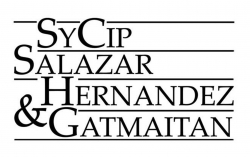6 September 2021
It depends on whether the renunciation is a general renunciation or a partial renunciation of the heir’s rights, interest and participation in the settlement of the estate of the decedent.
A general renunciation by an heir of his share in the decedent’s estate is not subject to donor’s tax and documentary stamp taxes (DST). However, if an heir’s renunciation is done specifically and categorically in favor of identified heir/s to the exclusion or disadvantage of the other co-heirs in the hereditary estate, then the renunciation of such heir’s share will be subject to donor’s tax and, if it involves real property, consequently, to DST.
In cases where the heirs agree among themselves to receive specific property instead of all the heirs receiving their respective shares in all the properties of the decedent, an heir may end up receiving a share lower or higher than the value of his rightful share in all the properties of the decedent. RMC No. 94-2021 clarified that this results in a partial renunciation of inheritance on the part of the heir receiving a share lower than the value of his rightful share in all the properties because the heir is waiving his share to identified properties only and not to the entire properties of the decedent. In such a case, donor’s tax and DST will be imposed on the value of the property/ies waived as a result of the partial renunciation.
RMC No. 94-2021 provides an illustrative example and the manner of computing the donor’s tax due in cases where the heirs agree to receive specific property instead of receiving their respective share in all the properties of the decedent. The heir making the renunciation may be subject to the 6% donor’s tax on the value of the properties waived.
SyCipLaw Tip: Heirs who are considering renouncing their inheritance should be aware that there are possible donor’s tax and DST consequences when they renounce their share in favor of a particular heir or to a particular property comprising the estate. In addition to the estate tax, donor’s tax and, possibly, DST will have to be paid before the BIR will issue a Certificate Authorizing Registration to enable the transfer of title to the property (such as land or shares of stock) to the heirs. Late payment of donor’s tax and DST will also subject the heir who partially renounces his inheritance to penalties such as the 25% surcharge on the unpaid tax and interest at the rate of 12% per annum.
For further information, please contact:
Carina C. Laforteza, Tax Department Head,
SyCip Salazar Hernandez & Gatmaitan
cclaforteza@syciplaw.com





